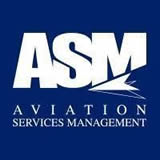 |
Nasrin Qurashi, Director of HR & Legal at Dubai-based Aviation Services Management (ASM), highlights the critical importance of having a team adept in various languages, cultures, and expectations from aviation authorities and diverse stakeholders globally.
The aviation industry is inherently global and culturally diverse, with commercial airlines and private jets operating across borders and languages. As the industry continues to evolve, effective communication and cultural understanding are paramount. Building a multilingual team is a crucial strategy for success in this dynamic environment.
With over 25 years of experience, ASM has established strong relationships with international clients, and building a multilingual team has been instrumental in our continued success. Here, I explore the benefits and challenges of creating a multilingual workforce, particularly for an organization based in the Middle East working with globally scattered clients.
The Benefits of a Multilingual Team in Aviation
Enhanced Communication with Clients and Authorities: Having a multilingual team ensures that we can communicate effectively with airport authorities and diverse airline clients across the globe. This ability reduces misunderstandings and fosters smoother interactions, resulting in swifter and more accurate service delivery.
Efficient Global Operations: Clear communication is crucial in aviation, where safety and efficiency rely on precise instructions. A multilingual team can ensure that language barriers do not hinder operations, whether in interactions with international partners, communication with a diverse workforce, or the provision of services to passengers from around the globe.
Market Expansion: A multilingual team can facilitate expansion into new markets and foster stronger relationships with international partners. By communicating effectively in the language of the customer or partner, we can better understand local needs, navigate cultural nuances, and build trust.
Cultural Competence: Multilingualism brings a deeper cultural understanding, allowing us to better serve our clients and partners from various regions. This competence is essential for tailoring our services to meet specific cultural expectations and preferences.
Diversity of Thought: A multilingual team brings a diversity of thought and perspective, leading to more innovative problem-solving. This diversity helps us approach challenges with a broader range of ideas and solutions, enhancing our service quality and operational efficiency.
Swift Conflict Resolution: In cases where issues arise, having a team that can communicate in the client's preferred language ensures that problems are addressed quickly and effectively, leading to higher client satisfaction and retention.
Strengthened Relationships: Effective communication in the client's language helps build stronger relationships, fostering loyalty and long-term partnerships.
Operational Flexibility: A multilingual team can adapt to various linguistic and cultural contexts, providing greater flexibility in managing global operations. This adaptability is crucial for ensuring seamless service delivery in different regions.
Challenges in Building a Multilingual Team
While the advantages are clear, building a multilingual team presents challenges. Recruitment is one of the main hurdles. Finding candidates with the necessary language skills and technical expertise can be difficult. Companies may need to cast a wider net, exploring diverse regions and talent pools.
Integrating team members from diverse linguistic and cultural backgrounds can also present challenges. Companies must foster an inclusive culture that values diversity and promotes clear communication across language divides. There may be communication barriers and cultural differences affecting team dynamics.
Managing a multilingual team can add operational complexity, particularly in ensuring effective communication among all team members. Implementing clear language policies and protocols is essential, especially when communicating about procedures, instructions, and warnings, as is common in aviation.
Strategic Advantage of Dubai Headquarters
Having our headquarters in Dubai significantly enhances our ability to build a multicultural team. Dubai is a global business hub that attracts talent from all over the world due to its strategic location, excellent infrastructure, and diverse, expatriate-friendly environment. This cosmopolitan city provides access to a vast pool of skilled professionals from various cultural and linguistic backgrounds, making it easier to recruit and retain a multilingual workforce.
Conclusion
As the aviation industry continues to evolve, organizations that embrace communication efficiency and cultural competence will be best positioned for success. In a world where borders are easily crossed, especially in aviation, the ability to communicate across language divides is the key to reaching new heights.
Established in 1998, Aviation Services Management (ASM) is headquartered in Dubai with multiple representative offices worldwide. The company has set the standard for excellence in the aviation industry, offering a holistic aviation solution across commercial and general aviation.
With a legacy spanning more than 25 years, ASM prides itself on its comprehensive, round-the-clock trip support services, including fueling, flight planning, permits, ground handling, flight tracking and supervision, flight diversion management, private jet charters, HOTAC, and luxury concierge services. ASM is recognized by leading international industry organizations such as NBAA, EBAA, and IATA.




